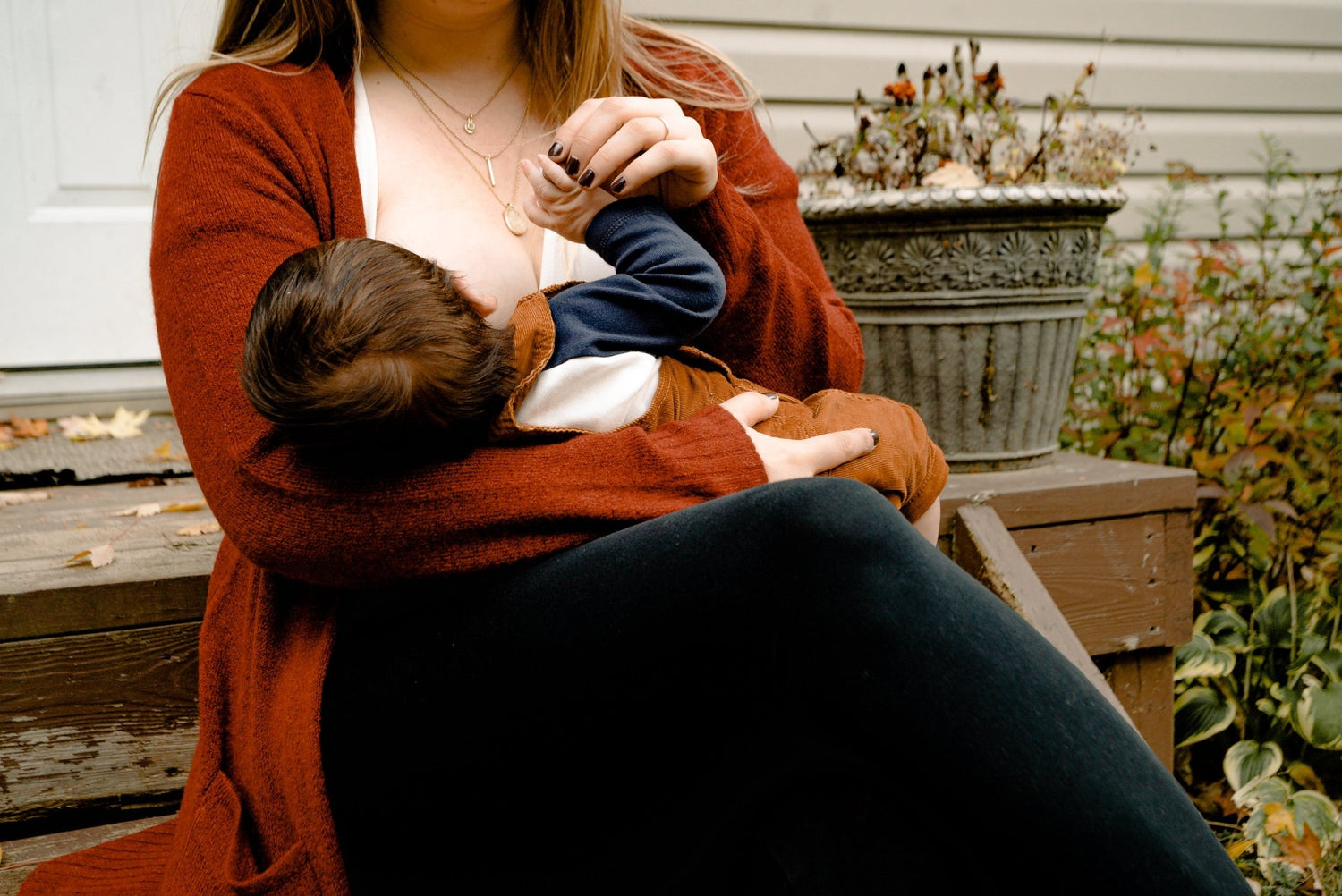Is your baby sleeping restlessly? 7 reasons and what you can do about it
Babies sleep differently! As new parents, this can be very challenging. Your baby sleeps restlessly, wakes up frequently during the night, and leaves the whole family exhausted. But why do babies wake up so often at night? My name is Dalia - I am a pharmacist and certified baby and toddler sleep consultant. In this article I would like to shed light on the most important reasons for restless sleep and show you what you can do about it. To do this, we'll take a look at your baby's sleep development.| Table of contents: |
1. How is your baby's sleep different?
Babies are born with an immature nervous system. Your child's sleep development is not complete until they turn three years old. As a newborn, it didn't know the difference between day and night and continued to sleep just as it did during pregnancy. The early days were therefore probably characterized by periods of waking at night. A day-night rhythm only develops from the second month of life. From then on, nighttime sleep becomes longer and longer, while daytime sleep gradually becomes shorter.
Another important differentiator is your baby's sleep cycle. While you need an average of 90-120 minutes for a complete sleep cycle, your baby's cycle is around 50-60 minutes. I'll show you what stages a sleep cycle consists of using this picture:

As you can see, a sleep cycle consists of 4 phases: the falling asleep phase, a light deep sleep phase, the actual deep sleep phase and again a light sleep phase. After your baby goes through these stages, he or she will awaken incompletely. Here your baby checks the situation: "Am I safe?", "Is mom/dad still there?", "Am I hungry/thirst?",...
If your baby doesn't feel safe enough or there are disturbing factors, he or she will wake up completely and have to be fed, changed and accompanied to sleep again by you.
2. Why does my baby sleep so restlessly at night?
Whether your baby sleeps restfully at night or not depends on many factors. I would like to give you 7 different reasons that can be responsible for restless sleep.
-
Sleep Architecture: Babies and toddlers spend around 40-50% of their sleep in the REM phase compared to adults. During this phase, sleep is less deep, characterized by rapid eye movements, increased brain activity and dreams. All experiences are processed and stored here, which means your baby can sleep more restlessly.
-
Daytime sleep: The day influences the night. It is therefore extremely important that your baby neither sleeps too much nor too little during the day. If he sleeps too much, he won't be able to build up enough sleep pressure for the night. On the other hand, it can also cause restless sleep if it doesn't get enough sleep, as overtiredness leads to increased production of cortisol. Cortisol is a stress hormone that makes restful sleep difficult.
-
Hunger: Babies and toddlers grow particularly quickly in the first few years of life, which uses up a lot of energy. It is therefore completely normal for your baby to wake up at night to satisfy his hunger needs. Nighttime meals are completely normal, even beyond the first year of life.
-
Closeness and security: Your baby gets everything he was missing during the day. So it can happen that on days when you haven't cuddled her enough, she craves your closeness more intensely and therefore sleeps more restlessly. Use the sleep companion to refill your child's bonding tank so that he or she falls asleep better.
-
Uncomfortable sleeping environment: Babies are sensitive to their sleeping environment. Make sure the baby bed is comfortable and safe. Use a suitable mattress, maintain an appropriate room temperature and ensure that the baby does not overheat. Calming sounds like quiet white noise or soft music can also help.
-
Illness or Teething: When babies are sick or teething, they may wake up more often at night. Check to see if your baby shows any signs of illness or discomfort, such as fever, cough, or nasal congestion. If you are unsure, you should always consult a pediatrician.
-
Developmental leaps: Babies go through many developmental leaps in the first few months of life. During these periods, your baby's sleep patterns may change as she learns new skills and explores her surroundings. Give your baby the time and support needed to overcome these jumps.
3. What can you do to ensure your baby sleeps restfully?
You cannot change or accelerate your baby's brain development. However, there are factors you can consider to ensure a restful sleep for the whole family:
-
Establish calming sleep routines: Bedtime routines and rituals help your baby adjust to sleep. For example, you can introduce a warm bath, a gentle massage or reading a bedtime story as rituals. Through these rituals you signal to your baby that it is time to sleep.
-
Optimize the sleep environment: Make sure your baby's sleep environment is quiet, dark, and free of excessive stimulation. Avoid bright lights and loud noises while sleeping. However, a soothing sound or quiet white noise can help create a pleasant atmosphere and drown out background noise. However, this should not run the entire night.
-
Be patient and lovingly supportive: Every baby is unique and needs time to find their own sleep rhythm. Be patient and loving with your baby when he or she wakes up at night. Security, closeness and attention are important factors in giving your baby security and helping him fall asleep.
-
Offer sufficient opportunities for exercise: The WHO recommends at least 30 minutes of exercise for babies under one year old and at least 60 minutes for toddlers aged one year and over.
A restful sleep is important for your baby's health and well-being, as well as for you as a parent. By understanding your baby's sleep needs and taking action accordingly, you can help your baby enjoy restful, peaceful sleep and learn to sleep through the night over time.
Guest post by Dalia from Baby Sleep Understanding:
Instagram: understanding baby sleep
Website: www.baby sleep-understand.com/





